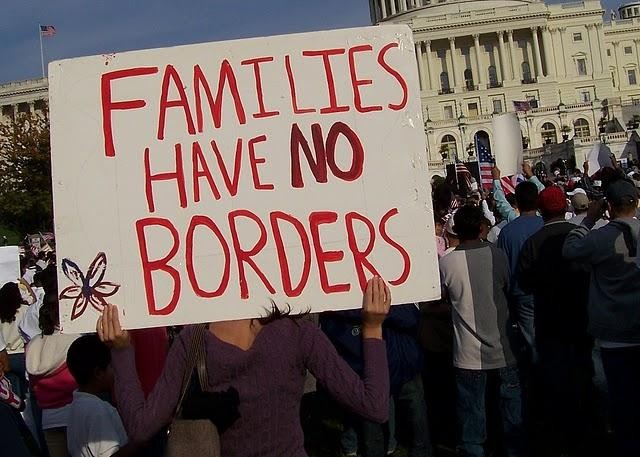Since comprehensive immigration reform is now officially dead — President Obama all but declared this in a November 25th speech in San Francisco — it’s time for a new approach to energize noncitizens who want to live and work in the U.S.
A comprehensive approach is critical to immigration reform that’s workable, serious, and humane, but the current Congress won’t act on a so-called pathway to citizenship for those living here without proper documentation. Obama, during his 2012 campaign, claimed comprehensive immigration reform as a top domestic priority, but he’s apparently given up.

In San Francisco, the president said he’s willing to accept a piecemeal deal that does not include a pathway to citizenship, thus guaranteeing that we continue living in a bifurcated society with a permanent underclass of cheap labor — not exactly analogous to South Africa before 1994, but the comparison is too close for comfort.
So the best we’ll get from “noncomprehensive” immigration reform is more visas for highly skilled individuals (because wealthy, well-connected high-tech firms want this), more border security (because law-and-order Republicans in border states insist on this), and more funding for drones, electronic surveillance, and other such nonsense, because wealthy corporations that manufacture these gadgets (Raytheon, for example) want this.
Republican House members have been demonstrably hostile toward immigrants — particularly poor Hispanic immigrants, and their scorn for undocumented workers is easily documented.
Newly reelected New Jersey GOP governor Chris Christie’s 51 percent capture of the Hispanic vote should not be read as a reversal of Hispanics’ traditional alliance with the Democratic Party. The second- largest community of Cuban Americans resides in and around Union City, New Jersey, and they have traditionally favored more conservative candidates.
Many older, hard-line Cuban Americans still blame John F. Kennedy for the failure of the 1961 Bay of Pigs invasion designed to oust Fidel Castro. Thus, by extension they see Cuban communism and Kennedy as essentially synonymous. Miami’s Little Havana, where the largest concentration of Cuban Americans reside, is partially bordered by Teddy Roosevelt and Ronald Reagan Boulevards. Other streets in the neighborhood are named for George Bush and … Jose Canseco.
Of course, only Congress can pass a comprehensive immigration reform package, but President Obama, true to Democrat tradition, has folded too quickly. The fight must continue.
Census data from 2011 suggests that approximately 8.5 million people are eligible for citizenship. Many never formally apply, because the paperwork is daunting and intrusive, the fees are high, they must pass a civics test, and some people prefer to retain their citizenship of origin.
Lawful permanent residents can generally apply for citizenship five years from the date of receiving their “green card” — the document that certifies permanent resident status. Let’s build a national campaign in support of citizenship, a campaign to facilitate the process by which millions of people eligible for citizenship file the paperwork and take the oath of citizenship before a judge. People need support in this process, and the following three-part plan would help.
First, attorneys should set up permanent clinics at all of the nation’s law schools, particularly those subsidized by taxpayers, to help lawful permanent residents understand the paperwork, analyze their options, and offer legal guidance. Law students should earn academic credit for this pro bono work.
Second, teachers and translators are necessary to help permanent residents write their essays, prepare the documentation, and study for the civics test they must pass to achieve citizenship. Undergraduate and graduate students and other compassionate citizens could help.
Finally, we’ll need money. In 2007, during the administration of President George W. Bush, the fees to file the paperwork leading to citizenship increased from $330 to the current $680. For many, this fee represents an insurmountable burden.
The solution is simple. There are many billionaires out there — Bloomberg, Buffett, and Gates, to name a few — who have vowed publicly to give away at least half their fortunes during their lifetime. Lawful permanent residents who complete the forms, pass the civics test, and take the oath of citizenship should receive a full $680 refund from what I’ll call the BCI — Billionaires’ Citizenship Initiative.
Who could possibly be against this plan? One group comes to mind: members of Congress responsible for crafting the nation’s laws and who live in fear of voters who don’t look like them, speak like them, live in their neighborhoods, or earn (nearly) the same money.
This is an American irony that’s painful to consider but too tragic to ignore.
Michael J. LaRosa is an associate professor of history at Rhodes College.